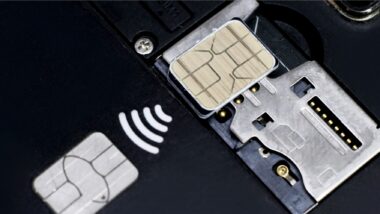This post was written in collaboration with my colleague Jérôme Voyer

Mobile marketing is widely used nowadays by mobile operators, retailers, service providers, and financial institutions, among others. What is more, the use of mobile marketing has continued to grow across all channels – within applications, text messages and push notifications. According to an international survey conducted among marketers, 79% of them agree that mobile marketing is core to their business. Indeed, mobile marketing is increasingly perceived as being directly linked to their business’ primary revenue source.

But since it’s not so easy to send personalized interactions and tailored offers to end-users, you end up with a plateauing of the mobile marketing’s acceptance rate.
This is where machine learning can help.
Before we explore how mobile and machine learning interact and the subsequent benefits, let’s start with a brief introduction.
What is Machine Learning?
In 1959, American artificial intelligence pioneer Arthur Samuel coined the term “Machine Learning” as “the field of study that gives computers the ability to learn without being explicitly programmed.” At its very beginning this field was mainly algorithmic, but nowadays machine learning comprises of a combination of several disciplines such as statistics, information theory, theory of algorithms, probability and functional analysis.
“Machine Learning is the field of study that gives computers the ability to learn without being explicitly programmed.”
— Arthur Samuel, US artificial intelligence pioneer
Well-known applications of machine learning today include the heavily-hyped self-driving car, online recommendation engines like those from Amazon and Netflix (e.g. you bought or watched this, you may like this), monitoring what customers are saying about a company on social media, and even fraud detection.
The relationship between Machine Learning and mobile
Machine learning is already part of our daily mobile digital life. Deloitte Global predicted that over 300 million smartphones, which is more than a fifth of units sold in 2017, will ship with on-board neural network machine learning capability.
Mobile users welcome even more radical changes. For instance, we’ve recently surveyed nearly 2,000 smartphone users worldwide about their expectations of the mobile user experience in 2025. It turns out that almost half (45%) of users surveyed expect their smartphones to be able to perform sophisticated tasks as an AI agent on their behalf.
Let’s have a look now on how to apply Machine Learning to Mobile Marketing.
Before going deeper, let’s discuss some insights from Gemalto’s experience and expertise in mobile marketing. At Gemalto, we have been running mobile marketing campaigns for more than 15 years, working with 70 operators and a 100 third parties and brands worldwide. In 2016, we doubled the number of Smart Messages sent in comparison to 2015 (e.g. mobile text messaging over SMS), to reach 18.3 billion, running over 10,000 campaigns per month. We have been able to reach a 20%-acceptance rate on mobile marketing campaigns, which is 10 times more than standard SMS campaigns.
But that’s not enough…
We aim to continuously improve the acceptance rate, so we’ve started investigating the power of machine learning. Machine learning algorithms can learn some properties of previous mobile marketing campaigns results and apply them to predict the next best offer for end-users.
The recommendation can either be “user-based”:
- look for people that are similar to me and look for an item they bought that I haven’t seen yet.
Or it can be “item-based”:
- look for products that are similar to the ones I’ve already bought.
As part of Gemalto’s innovation program and with the help of our CTO R&D, we’ve already tested these concepts in July this year through a pilot with one of the major mobile telcos in Africa, sending millions of promotional messages to their subscribers daily.
The results exceeded our expectation: Machine Learning helped improve the acceptance rate of Mobile Marketing campaigns by more than 50%. And the KPI about the increase of acceptance rate is not just a guess, but it can be strictly controlled via A/B (campaign A and campaign B) testing. Let’s take this example – two campaigns were launched, same schedule, same offer. On one side, the target list of campaign A was randomly generated. On the other side, the target list of campaign B was generated by machine learning algorithms. Campaign B was performing much better thanks to the machine learning-based recommendation system.
Machine learning can increase mobile marketing campaigns’ acceptance rate by more than 50%
Benefits of machine learning to mobile marketing
We’ve found the following benefits machine learning brings to mobile marketing:
- Improve the customer engagement and thus campaign acceptance rate,
- Reduce operational costs thanks to the automation of the process, giving more time to your marketing team for creativity,
- Identify/prioritize automatically high-revenue generating offer and rationalize the offers catalog accordingly,
- Send tailored and personalized offers to the end-users, i.e. marketing personalization,
- React automatically to complex customer behavior, and any changes in that behavior.
And there’s one more thing we’ve noticed.
The better quality you put in, the higher your acceptance rate is.
Thus, in the future, we could imagine adding other users’ insights in our data lake to improve the efficiency of our predictive marketing tools, such as data coming from operators.
For example, via their Automatic Device Detection platform, operators can collect intimate knowledge of device history and characteristics (e.g. identifying the 3G/4G handset model, detecting if users changed their handset or detecting when users are back on the network), as well as subscribers last network attachment date.
Machine learning topples the way of envisaging & operating mobile marketing
As a conclusion, we can assert that the era of the Machine Learning-enabled Mobile Marketing has just started. Machine Learning topples the way of envisaging & operating Mobile Marketing.
As a mobile operator, a retailer or a brand, what’s your view here? Are there any other points you consider crucial for developing your business? Let us know your thoughts by tweeting to us at @GemaltoMobile or leave a comment below.


